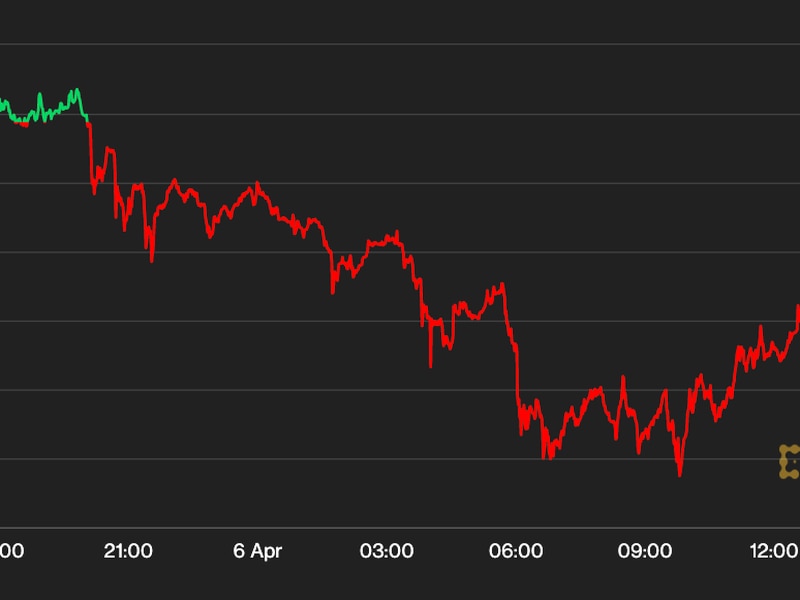CryptoX – Cryptocurrency Analysis and News Portal ETH’s price slid 1.7% on Thursday, the day after reaching its nine-month high. The Ethereum upgrade is scheduled to occur April 12. Source The post Ether Holds Near $1.9K as Shanghai Fork Approaches appeared first on CryptoX. CryptoX Portal
Day: April 6, 2023
DeSantis is right — CBDCs will lead to absolute government control
Arguing over the prudence and implications of issuing a central bank digital currency (CBDC) in the United States has seemingly become one of Washington’s favorite icebreakers. As Congress considers the question, it is critical that Americans clearly understand and soberly consider the immense power a CBDC could grant governments as well as the unacceptable risk of that power’s potential abuse. In March, Florida Governor Ron DeSantis introduced a proposal to ban CBDC use in his state, arguing that total monetary control by the federal government is dangerous for American society.…
Smaller investors can have outsized impact on crypto investment markets: BIS study
The Bank for International Settlements (BIS) has released a working paper examining “crypto carry” — the differences between Bitcoin (BTC) and Ether (ETH) spot and futures prices — and its effect on crypto investment markets. The complex paper sheds light on the behavior of crypto investors, particularly smaller investors, in relation to boom and bust cycles. “Carry” describes the results of “going long in the spot market, while selling forward the same amount forward via a futures contract.” The paper bases its findings on “stylized facts” based on a variety…
Ukraine Dismantles $40 Million Russian Crypto Pyramid – Bitcoin News
Ukrainian law enforcement has exposed a financial pyramid originating from Russia suspected of making millions of U.S. dollars. The scam convinced victims to send fiat money and cryptocurrency by promising profitable investments in big companies around the world. Large Crypto Pyramid Scheme With Russian Roots Busted in Ukraine Officers from the Security Service of Ukraine (SBU) have unraveled a fake investment scheme called ‘Life Is Good,’ the agency announced on Tuesday. The fraudsters behind it offered potential clients to multiply their money by acquiring shares of global enterprises. The organizers…
Paxful co-founders’ litigation cites misappropriation of funds, money laundering, U.S. sanctions evasion
A bitter dispute between Paxful’s co-founders Artur Schaback and Mohamad (Ray) Youssef in Delaware’s courts may have been the real reason behind the Bitcoin marketplace’s sudden closure on April 4. Schaback and Youssef, who started Paxful in 2015 with a shared passion for Bitcoin (BTC), are now litigating the company’s control with several accusations against each other, according to court documents. Misappropriation of company funds, money laundering and evasion of United States sanctions against Russia are among the allegations. Founders disagree Schaback was chief operating officer (COO) at Paxful until February…
Dogecoin Drops After Elon Musk's Twitter Stops Using Shiba Inu Logo
Dogecoin Drops After Elon Musk's Twitter Stops Using Shiba Inu Logo Source
Venture Capital Bitkraft Raises $220.6M for Second 'Token Fund'
The firm didn’t comment on whether the fund has a Web3 angle, but did outline their crypto investment strategy. Source
Washington state DFI warns Eucoinotrade may be engaging in ‘advanced fee fraud’
The Washington State Department of Financial Institutions (DFI) has issued a consumer protection alert addressing the “alleged cryptocurrency exchange” known as Eucoinotrade. At least one person may have fallen victim to what appears to be “advanced fee fraud,” per the report. This is a confidence scheme that involves soliciting large sum payments for fees under the guise they’re needed to release supposed earnings. According to the DFI, “after investing 5 or 6 times, for a total of nearly $50,000, the investor’s Eucoinotrade account purportedly grew to over $414,000.” However, the…
GMX and dYdX go head-to-head for the top decentralized derivatives position
The top two decentralized derivatives platforms, dYdX and GMX, are head-to-head around liquidity and trading volumes. The perpetual swap daily trading volume on dYdX ranged between $340 million and $2.6 billion in March, per CoinGecko data. In comparison, GMX did less than $500 million in daily trading volumes. The open interest (OI) volume, which measures the number of contracts traders hold on both exchanges, is closer than trading volumes. CoinGecko reported that GMX’s OI has ranged between $170 million and $200 million since March 2023 on Arbitrum alone. At the…
Solana reveals cost-cutting solution for on-chain storage
Layer-1 blockchain Solana has released a new solution aiming to drastically reduce the cost of on-chain storage. Called state compression, the technology promises to bring down the cost of minting 1 million nonfungible tokens (NFTs) on the network to nearly $110. “After numerous phases of development, adoption, and rollout, compressed NFTs are live on Solana’s mainnet-beta and powering the next wave of novel on-chain product experiences,” said Solana Foundation tech lead Jon Wong in a blog post on April 6. According to Wong, compressed NFTs “are 2,400-24,000x cheaper than uncompressed” peers…










